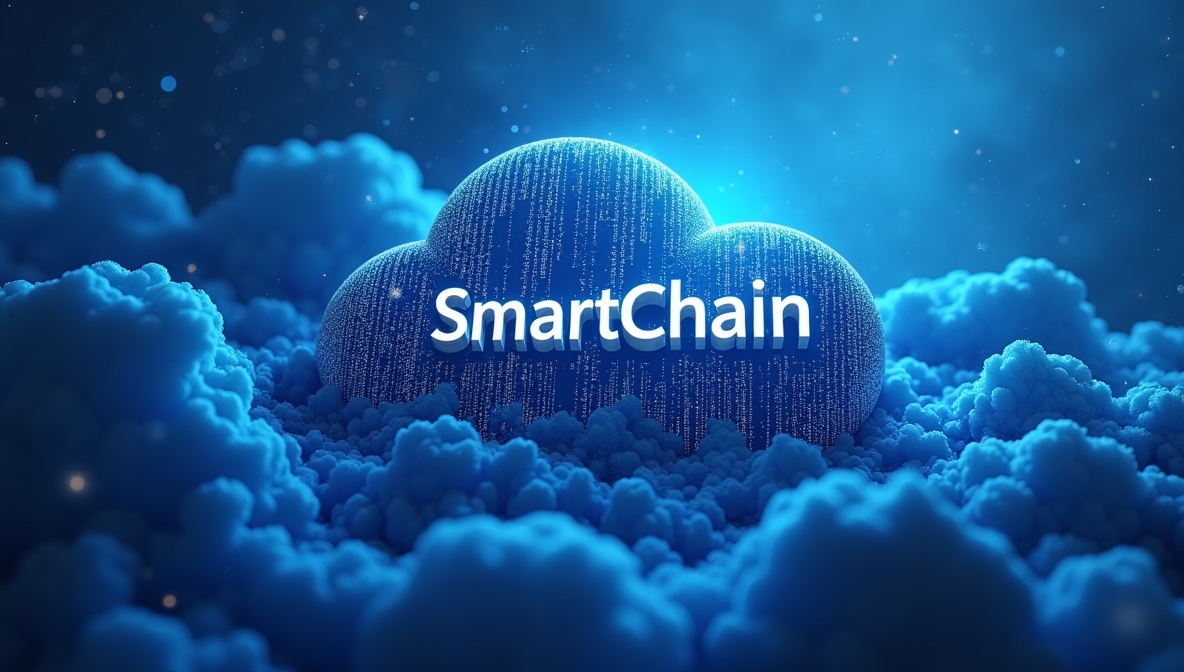
Cloud computing has become the backbone of digital infrastructure, supporting everything from enterprise applications to real-time data processing. However, traditional cloud models face challenges in scalability, security, and cost-efficiency. SmartChain introduces a new approach that integrates blockchain technology into cloud computing, offering a decentralized, secure, and efficient alternative.
What is SmartChain?
SmartChain is a blockchain-powered cloud computing framework designed to optimize data processing, storage, and security. Unlike conventional cloud models that rely on centralized servers, SmartChain distributes workloads across a decentralized network. This reduces the risks associated with single points of failure and enhances computational efficiency.
Key Benefits of SmartChain in Cloud Computing
1. Decentralization for Enhanced Security
Traditional cloud computing relies on centralized servers, making them attractive targets for cyberattacks. SmartChain mitigates these risks by distributing data across a blockchain network. Each transaction is encrypted and stored on multiple nodes, reducing the likelihood of data breaches.
2. Cost-Efficient Resource Allocation
SmartChain optimizes resource usage by enabling peer-to-peer computing. Organizations can rent computing power and storage from a decentralized network rather than maintaining costly data centers. This model reduces operational expenses while ensuring high availability.
3. Increased Transparency and Data Integrity
Data stored on a blockchain remains immutable and verifiable. SmartChain eliminates unauthorized data alterations, making it an ideal solution for industries that require strict compliance, such as finance, healthcare, and supply chain management.
4. Improved Scalability
Traditional cloud infrastructure faces bottlenecks when handling large workloads. SmartChain utilizes distributed ledger technology to scale horizontally, allowing computing power to expand dynamically as demand increases.
5. Smart Contracts for Automated Operations
SmartChain integrates smart contracts to automate processes such as data validation, transactions, and resource allocation. These self-executing contracts reduce human intervention, improving efficiency and minimizing errors.
Use Cases of SmartChain in Cloud Computing
1. Secure Data Storage
With data breaches becoming more frequent, SmartChain provides a secure alternative to conventional cloud storage. Encrypted data is stored across a decentralized network, ensuring unauthorized entities cannot tamper with it.
2. Edge Computing Optimization
SmartChain supports edge computing by enabling real-time data processing closer to the source. This reduces latency for IoT applications, such as smart cities, autonomous vehicles, and industrial automation.
3. Decentralized Applications (DApps)
Cloud computing powers numerous applications, but centralized control limits transparency and security. SmartChain enables the development of decentralized applications that operate without intermediaries, ensuring users retain control over their data.
4. AI and Machine Learning Workloads
AI-driven processes require significant computing resources. SmartChain allows distributed computing, where multiple nodes contribute to AI training models, reducing costs and improving efficiency.
5. Healthcare Data Management
The healthcare sector demands secure and verifiable data management. SmartChain ensures patient records are immutable and accessible only to authorized personnel, reducing fraud and administrative inefficiencies.
How SmartChain Differs from Traditional Cloud Computing
| Feature | Traditional Cloud Computing | SmartChain Cloud Computing |
|---|---|---|
| Architecture | Centralized Servers | Decentralized Blockchain |
| Security | Vulnerable to Breaches | Encrypted & Immutable |
| Scalability | Limited by Infrastructure | Dynamic & Distributed |
| Cost | High Maintenance Costs | Pay-per-use Model |
| Automation | Manual Processes | Smart Contracts Enabled |
Challenges and Future Prospects
While SmartChain introduces significant improvements, it is not without challenges. The technology is still in its early stages, requiring further development in scalability, interoperability, and regulatory compliance. Adoption barriers include high initial implementation costs and the need for widespread education on blockchain-based cloud solutions.
However, as organizations seek more efficient and secure cloud solutions, SmartChain is positioned to become a critical player in the evolution of cloud computing. By addressing existing limitations and refining its capabilities, SmartChain has the potential to redefine how businesses and individuals interact with cloud services.




